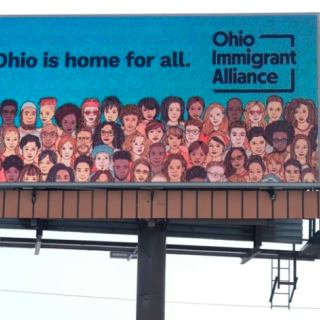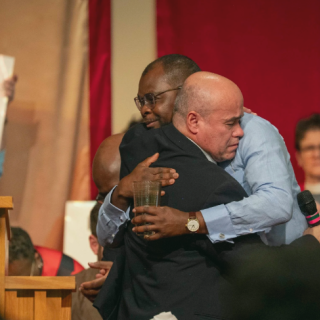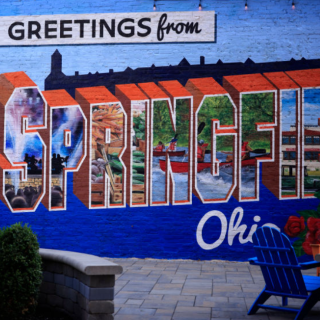Advertisement
The tall, grey-haired, 60-year-old attorney Steven Donziger gave a final hug to his son last Wednesday, Oct. 27, 2021. Donziger had spent over two years confined in his Manhattan apartment, restricted by a judge-ordered GPS ankle bracelet. And now his first destination would be the nearest jail, to which Steven, a supposed flight risk, drove himself.
After the years spent on house arrest throughout an intimidation lawsuit and facing an $800,000 bail bond – the highest in U.S. history for a misdemeanor – Donziger will now spend the maximum sentence of six months in a federal prison. The alleged crime was contempt of court, but the real crime was Donziger’s successful lawsuit against Chevron, which resulted in $9.5 billion in damages being allocated to Ecuadorians affected by their deadly pollution in the country.
Not a penny of that $9.5 billion, however, ever made it to the people of Ecuador. Instead, Chevron weaseled their way out of the damages and launched a billion-dollar show trial against the attorney that stuck up for the indigenous people of Ecuador.
Corporate cancer
María Garofalo, a young mother living in the poisoned landscape of San Carlos, Ecuador, cries as she describes her life in the 2009 documentary Crude. Her 18-year-old daughter has cancer; each treatment costs $500. In an attempt to raise the funds for treatment, María bought chickens but ended up with nothing. “Now we don’t have anything because everything has just died,” she said with tears streaming down her face. “All the animals are dying from contamination because they run to the stream and drink the water.”
The almost unbelievable corporate conspiracy behind Steven Donziger’s show trial is actually not about Steven at all, but about indigenous people and farmers in Ecuador. Known as the “Amazon Chernobyl,” the case against Chevron was brought about after the flooding of Ecuador’s ecosystem with deadly amounts of oil and toxic waste by the corporation Texaco, now owned by Chevron. Billions of gallons of oil and cancerous waste dumped and spilled in Ecuador years ago left thousands displaced, sick, and dying. Chevron admitted to Texaco’s dumping of 16 billion gallons of toxic waste into waterways, a regular practice for them to keep waste pits from overflowing, however, they refuse to take any legal responsibility for their actions.
“This has affected me terribly because I lost two of my children,” said Emergildo Criollo from the Cofán tribe of Dureno. His first son stopped developing after six months, and his second son died a day after unknowingly bathing and drinking in an oil-drenched river. “We came back home in the afternoon, and he started vomiting blood. He didn’t last 24 hours.” Criollo is one of thousands who witnessed loved ones die from using water sources downstream from oil facilities in Ecuador and is one of the few left of the Cofán tribe in Dureno after thousands were forced to relocate. His story was also highlighted in the 2009 documentary Crude.
These indigenous communities have few resources to survive the effects of Texaco’s pollution, let alone to put together an international legal team to fight a major oil corporation that has hundreds of billions of dollars of revenue at its disposal. The “David and Goliath” parallel was often used to describe the lawsuit that followed, but it also evoked earlier images of colonizers vs. colonized, or even a continuation of imperialist plunder with a U.S.-based company extracting resources from the global south. Thousands of villagers in the region joined to file a class-action lawsuit in 1993, with Donziger as the lead legal organizer.
Chevron owes $9.5 billion to Ecuadorians
Donziger and other attorneys filed suit against Texaco in 1993 on behalf of more than 30,000 indigenous people and farmers in the Amazon. The case was filed in New York since the company was based in the U.S., but Texaco wanted to move the case to Ecuador where the legal system doesn’t involve juries. To Chevron’s surprise, because of the historical context of Ecuador—their people tired of multinational corporations exploiting their country—the judge had little sympathy for Chevron’s dirty legal arguments.
The judge and observers were taken to locations where Texaco’s waste pits remained after decades, still connected to local waterways. They even went to land seemingly safe from oil, but digging exposed oil seeping beneath the earth. The Chevron lawyers retorted that the plaintiffs just assumed that these dozens of pits belonged to Texaco when could just as likely have been those of the state-owned oil company, PetroEcuador.
PetroEcuador was founded in 1989 and did very little actual oil production until Texaco left the country in 1992. Chevron’s lawyers claim that those waste pits and pollution could have been the result of PetroEcuador operations, but they’ve produced no evidence of these claims and take no responsibility for the infrastructure that PetroEcuador inherited from Texaco. Chevron claims that Texaco’s $40-million cleanup when leaving Ecuador was executed without flaw and thus absolves Chevron of any liability.
The years of legal battles culminated when left-wing economist Raphael Correa was elected president of Ecuador in 2006, generating optimism that the new government would be harsher towards corporate corruption. His supporters chanted at his 2007 inauguration, “Socialism yes, imperialism no!” Correa visited the waste pits and the indigenous people affected by both Texaco and PetroEcuador, claiming that both need to be held accountable. This dismissed Chevron’s argument that only PetroEcuador should be held responsible.
Donziger saw that Chevron’s tactics involved not just coming up with hollow defenses, but also dragging on the trial to drain the plaintiffs’ resources, of which Chevron had an unlimited amount. “No matter what I do, they know that they can outmaneuver me with money and time. That’s how they win,” Donziger sighed. Chevron spent an unknown amount on their campaign to discredit findings, hiring their own scientists to back up their claims.
“Certainly there are people there that are sick, it’s a very poor region,” Chevron’s Chief Environmental Scientist Sara McMillen said. “There’s absolutely no evidence that there’s an increase in cancer rates, and there’s absolutely no evidence that any of that is linked to oil production.” She said company scientists found the local water to be up to safe drinking standards, but in the same breath claimed that skin irritation caused by bathing in contaminated water was caused by inept sewage systems, not oil. “This is industrial exploitation permitted by law,” said a Chevron lawyer, “not contamination.”
But a 4,000-page independent investigation found that Chevron was indeed responsible for the environmental harm, cancer deaths, impacts on indigenous communities, and Texaco’s “unjust enrichment” from its business. The investigation estimated there had been $27 billion in damages. The court wasn’t required to follow the findings of the independent investigation, but the judge found Chevron guilty based on the overwhelming evidence, and damages were eventually set at $9.5 billion.
The decision was upheld by the Ecuadorian Supreme Court on appeal, but Chevron refused to accept the verdict and pulled all their assets out of Ecuador, escaping enforcement of the courts. After Ecuador indicted Chevron attorney Ricardo Veiga on fraud, the company unsuccessfully lobbied the U.S. government to revoke trade agreements with Ecuador.
Chevron v. Steven Donziger
In 2010, federal judge and Chevron sympathizer Lewis A. Kaplan ordered filmmaker Joe Berlinger to turn over 600 hours of footage from the production of the documentary Crude so that Chevron could look for evidence against the legal team that beat them in Ecuador. In 2011, Chevron filed a civil Racketeer Influenced and Corrupt Organizations (RICO) case against Donziger, initially seeking $60 billion in damages, until they learned the case would include a jury, in which case they scaled back to just targeting Donziger.
In 2014, Kaplan ruled that the Ecuador lawsuit was invalid due to alleged “corruption of the courts.” Chevron claimed – without evidence – that Donziger bribed officials in Ecuador and that he fabricated documents. The key factor in this case hinged on the testimony of a former Ecuadorian judge, Alberto Guerra, who was bribed by Chevron to speak out against Donziger. Chevron moved Guerra to the U.S., hiring immigration lawyers for him and his family, and putting him on a $12,000-a-month payroll. Guerra, after being prepped more than 50 times by Chevron, lied about Donziger, saying exactly what Chevron needed him to. He later admitted that it was all made up or grossly exaggerated.
Nonetheless, Guerra’s lies were enough to persuade Judge Kaplan of Donziger’s guilt in the civil case. Kaplan displayed clear signs of bias, praising Chevron as “a company of considerable importance to our economy that employs thousands all over the world, that supplies a group of commodities, gasoline, heating oil, other fuels, and lubricants on which every one of us depends every single day.” Over 200 lawyers filed a judicial complaint against the judge.
“[Donziger] has effectively been convicted of bribery by the finding of a single judge in a case in which bribery wasn’t even the charge,” Charles Nesson, an attorney and Harvard Law School professor, told the Intercept.
Nesson teaches Donziger’s case in a “Fair Trial” course, using it as an example of an unfair trial. Nesson tells the class, “Donziger epitomizes a person in asymmetric civil litigation who can now be denied a fair trial.”
After the initial civil ruling, Kaplan charged Donziger with six counts of criminal contempt of court for appealing the judge’s decision to turn over his electronic devices, Donziger arguing that it went against attorney-client privilege. However, the U.S. attorney’s office for the Southern District of New York refused to prosecute him.
In a completely unprecedented move, Kaplan vengefully appointed a private law firm with connections to Chevron to prosecute Donziger. The case, called United States of America v. Steven Donziger, could be more accurately designated A Private Chevron-linked Law Firm v. Donziger.
In another unprecedented move, instead of randomizing the judge for the case, Kaplan hand-picked U.S. District Judge Loretta Preska. She was on the advisory board of the Federalist Society, of which Chevron was a large contributor. In 2019, Preska ordered Donziger to post an $800,000 bail bond, prohibited him from earning money, and sentenced him to home detention, seizing his passport and labeling him a flight risk, despite the fact he’d been present at court dates for years prior, displaying no intent of fleeing. Donziger is the first attorney in U.S. history to have been charged with criminal contempt while appealing a civil discovery order.
A handful of attorneys were either disqualified from defending Donziger or were unable to show. His third lawyer was assigned to Donziger against his will before his fourth stepped in. The pandemic kept delaying the trial until the date of May 10, 2021, was set. Seeing as the pandemic restricted public attendance of the trial, Donziger requested the trial be streamed online or on television. Both requests were denied by Preska. On July 26, 2021, Donziger was found guilty on all six contempt charges, and Preska sentenced him to the maximum of six months in prison.
Chevron’s win against Donziger was not just acquired through shady legal means – although executing their imprisonment of Donziger required hundreds of lawyers from 60 firms. The company also launched an all-out propaganda campaign against him. They hired private investigators to stalk him and created a lazily-designed “publication” solely for the purpose of running a smear campaign against Donziger. The homepage slideshow consists solely of photos of Donziger with headlines like, “Confessions of a Fraud” and “Texaco already cleaned up its share.”
Chevron even admitted during the lawsuit in Ecuador that their long-term plan was to “demonize Donziger.”
The international community has spoken out against the show trial of Donziger, referring to him as a political prisoner under corporate prosecution. Amnesty International said they and others were “concerned that the case against him appears to be in retaliation for his work in defense of the rights of Indigenous peoples in Ecuador.”
The highest legal body on human rights in the world—the United Nations High Commissioner on Human Rights—ruled that the U.S. government must release Donziger from “arbitrary” detention, concluding that multiple provisions of international law were broken, including the right to a fair trial.
They found that Judges Preska and Kaplan displayed a “staggering lack of objectivity and impartiality” and called for Donziger’s immediate release and that he be compensated for deprivation of liberty.
Martin Garbus, part of Donziger’s legal team and former attorney for historic figures like Nelson Mandela, said of the U.N. declaration: “This is an extremely significant and courageous decision by five international jurists who confirm what we have been saying for over two years: Steven Donziger has been subject to an illegal detention orchestrated by Chevron and two ideologically-driven trial judges who are retaliating against him for winning a major pollution judgment in Ecuador against a powerful U.S. corporation.”
All of Donziger’s troubles with Chevron stem from him holding them responsible for poisoning and killing indigenous people in the Amazon, whose suffering was often overshadowed by Chevron’s show trial.
Donziger said in a recent interview with DemocracyNow!, “No matter what happens to me—and I hope I’ll be OK, I hope I’ll get through this, I expect to get through this—the communities in Ecuador are suffering tremendously, and they need help.”
Chevron’s actions also set a chilling precedent for other environmental activists, he said in the same interview. “I believe this whole thing is being orchestrated by Chevron, not just for Chevron, but for the entire fossil fuel industry. They don’t want people speaking out. They don’t want successful litigation to hold them to account for their pollution in ways that will help save the planet.”
Donziger is currently serving his six-month sentence in a federal prison in Connecticut. His Twitter account, run by the “#FreeDonziger” team, encourages supporters to send letters of support to him at:
Steven Donziger
Register No: 87103-054
Federal Correctional Institution
Pembroke Station
Danbury, CT 06811
This article originally appeared in People’s World.



